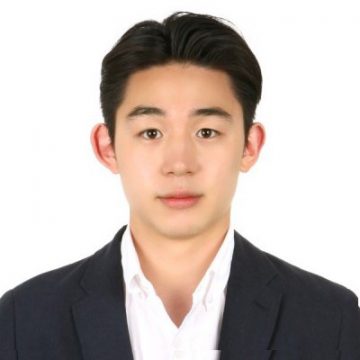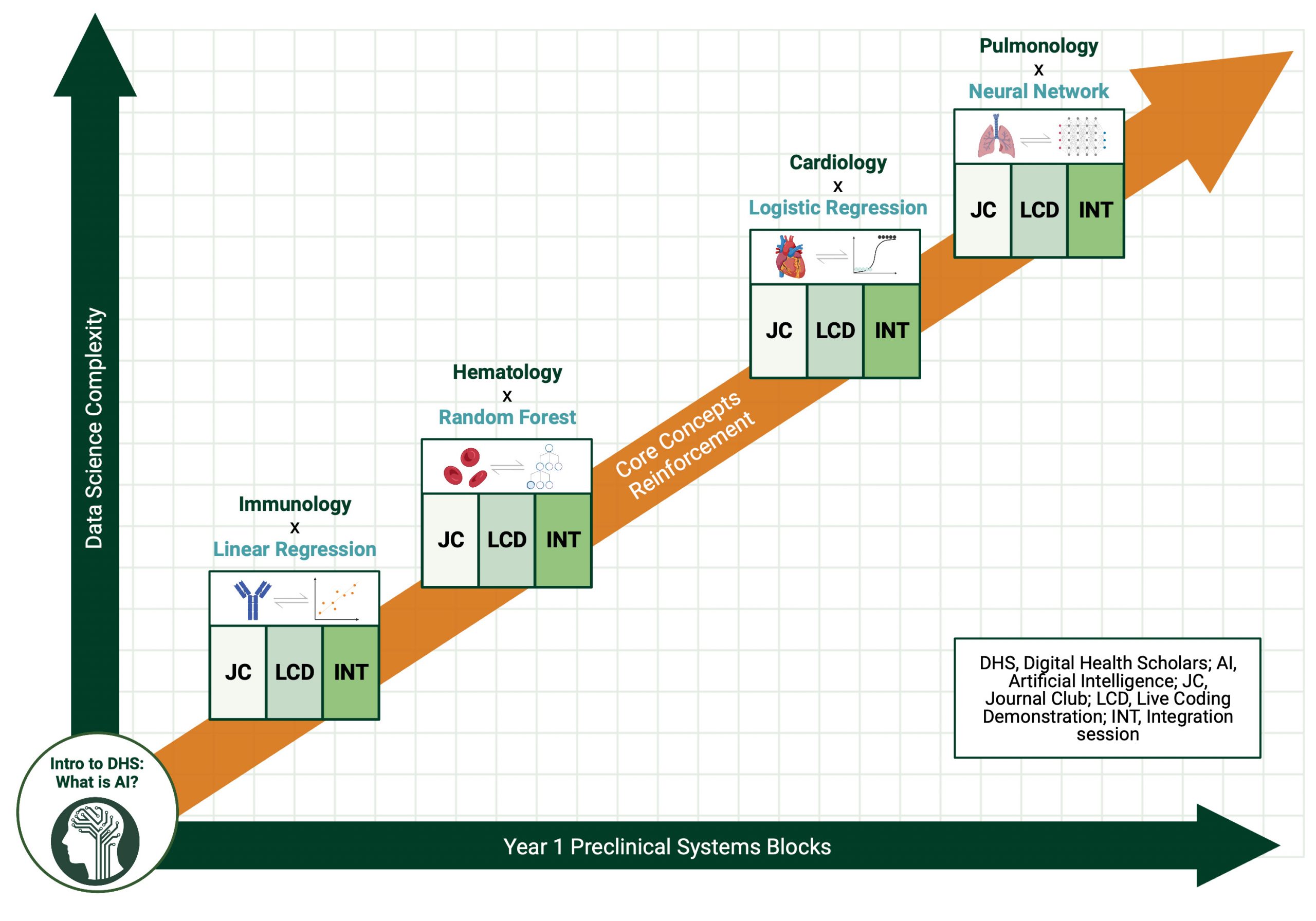During his first year at Geisel School of Medicine, Soo Hwan Park ’25 and several of his classmates noticed that many of their peers had backgrounds in either computer science, data science, or statistics.
“This growing proportion reflected not only the increasingly close relationship between medicine and big data, but also an opportunity for an integrational curriculum aimed to prepare interested students for the rapidly changing AI-enhanced clinical landscape,” Park says.
But the medical school curriculum did not include content dedicated to AI in medicine.

To address this gap, Geisel’s student-run Digital Health Scholars program launched a pilot study—they designed a digital health non-credit enrichment elective to sequentially introduce AI concepts within the preclinical curriculum.
With Park as the lead author, the outcomes of this student-led initiative that began in Fall 2022 have recently been published in a paper in the journal Medical Education Online. “The study,” he notes, “demonstrated an AI-education that parallels the systems-based preclinical curriculum and introduces relevant technical and applicational concepts may be a viable educational model."
“This parallel model has the potential to not only introduce both traditional statistical techniques and newer deep learning methods with clinical applications, but also the limitations and promise of the technologies,” says Travis Byrum ’25, who guided the technical aspects of the curriculum. “We suggest expanding the elective to include more students to determine the most effective way to integrate AI education into medical training.”
And on the importance of AI in the future of healthcare and the need to prepare students, Thomas Thesen PhD, associate professor of medical education at Geisel, who assisted the students with the study, adds, "The promise of AI in healthcare is great and we must prepare our students of today for medical practice tomorrow. Physicians of the future must be knowledgeable about AI to critically appraise and ethically implement these technologies, ensuring that patient care is improved by AI, not overshadowed by it."
"The promise of AI in healthcare is great and we must prepare our students of today for medical practice tomorrow. Physicians of the future must be knowledgeable about AI to critically appraise and ethically implement these technologies, ensuring that patient care is improved by AI, not overshadowed by it." - Thomas Thesen, PhD, associate professor of medical education.
In addition to Park, the paper’s co-authors, who are all affiliated with Geisel School of Medicine, include: Roshini Pinto-Powell, Thomas Thesen, Alexander Lindqwister ‘22, Joshua Levy, Rachael Chacko ‘25, Devina Gonzalez ‘25, Connor Bridges ‘25, Adam Schwendt ‘25, Travis Byrum ‘25, Justin Fong ‘25, Shahin Shasavari ‘25, and Saeed Hassanpour.
